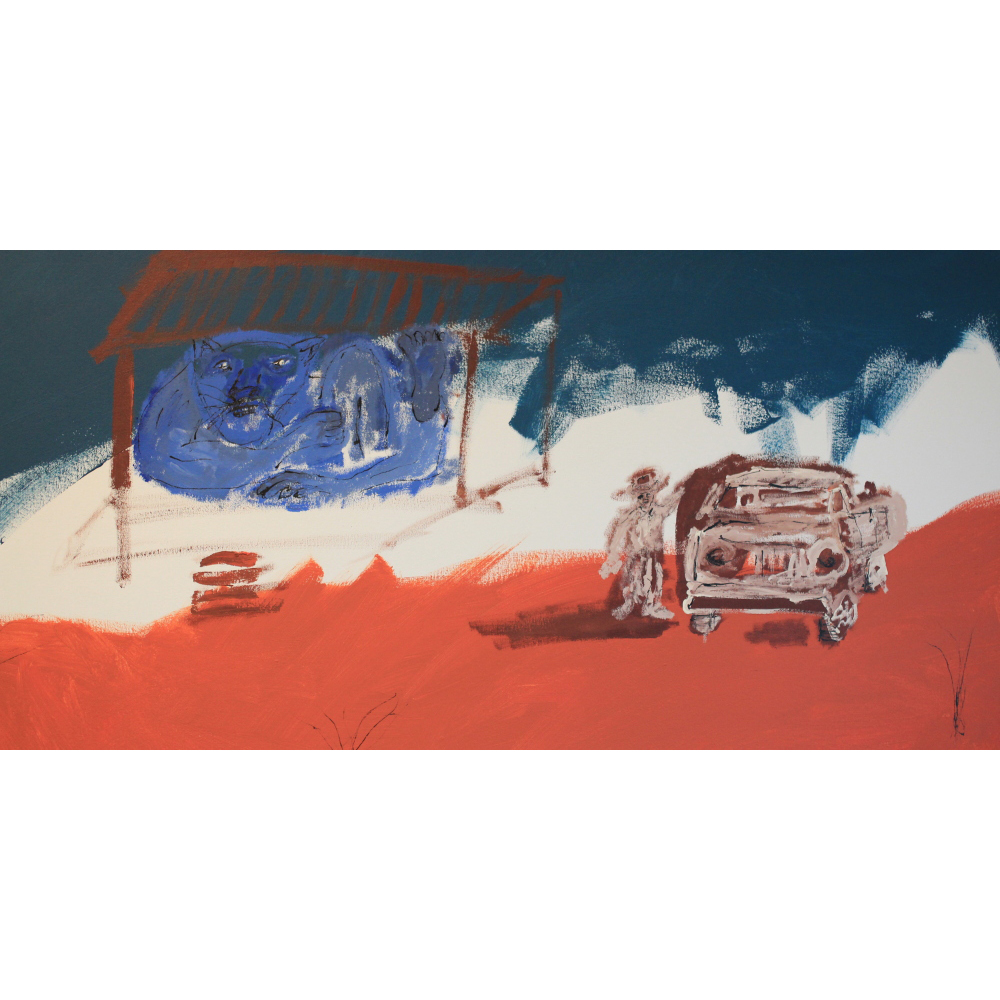Seams
By Migueltzinta Cah Mai Solís Pino
Gender, the garment, has been tailored. But does it know the body like spandex? Is it a pair of jeans—machined, carved in that way, its fibers dilating and contracting as demanded? Or possibly the gender garment is a knit tube sock—a strange color, loose in places? A tiny knot in a corner and, otherwise, seamless. Really, a body, a gender, a self-presentation that is seamless is like nothing else. It is owned—yes, with a little help, I made this. Where are the seams? You marvel aloud. Show them to me, highlight them, use this laser pointer, show me where to touch that I may feel with my fingertips where they hid the seams. Make the distinction known between this decision and that moment. When did you know? When did you become…? What was the moment when woman became man, dyke became queen, marimacha became maricón?
I’d say the moment was when that man got into his pickup truck, while, broom in my hand, I watched him through one-way glass. That was in late 2010, in rural Oaxaca; the sky blue with rain, but the earth dry and split open in places. A thief, I stole a casual moment from an unsuspecting like-an-uncle-to-me sort of man and kept it for myself. I had been sweeping up the corpses of two crushed scorpions from the dusty tile floor. I heard his voice raised against the distance between him and his mother, and I looked up in time to witness the beautiful, simple thing happen. Approaching the driver’s side of the white Chevrolet pickup, he drew the door open and reached up with thick, rust-colored arms, gripping the window and door frame, Zapata mustache arched serenely over his mouth. He sat himself at the wheel. Like it was nothing, he sat himself down at the wheel along with all the things I knew him to be—rude, sincere, bigoted, loud, guilty, hardworking, independent, macho, bruto, y terco. To me, spying from the dark room through the window’s wrought iron roses, it was everything.
Without rumpling the sheer curtains, I watched him start the engine, raise the volume of the radio—“la banda Norteña, los carros del año, las mejores plebes las traigo a mi lado”. He sped backwards down the dirt road. I stood there, savoring the phallic, truck-shaped displacement of ego and air he left behind. I knew that I did not want to be him, but I also knew some part of me would have to be cut out of his cloth. Bafflingly, in that moment I knew that I would undergo testosterone treatment. I pushed the dead scorpions onto a flattened cereal box and opened the door.
But this is, of course, too easy. If this is the seam, it can’t be the only seam. The secret is that this garment is made of many skins, many fabrics; cross-woven.
Another occurs earlier, much earlier in the wrinkled time of gender. Here my lover and I are under a bridge, cold and wet, drinking from a bottle of fine beer, the surface of Puget Sound a bedsheet pulled flat and smooth before us. Our brown skins are strange colors, inverse and pallid, because we have been sunless for months. Sitting there, who is it that decides? I can’t remember. Does she offer to call me “he”? Do I ask it of her, serious, as if asking of her a kidney? Do I beg from her assurance that this is not a cultural surrender, because I have never heard of a transgendered Mexican?
I remember now. I ask her to use male pronouns between us in Spanish. She says yes, that it feels somehow natural to do this. This must be it: the moment where a hesitant stud agrees to have a pronoun accompaniment whipstitched into place. But words are just words—a pronoun, seeming at first like a magical, transformative talisman—is in the end just a pronoun. Hollow, an artifice, an ease for the dis-eased. It was, after all, the gesture—her affirmation—that mattered. The actualization, not the throwaway lingual accoutrement.
Most likely, the moment was when the drunk and beautiful boy lay his head on my shoulder and told me he didn’t care that I had two tits and no cock, that I was so butch, so butch. Our whetted bodies grown hot in the small, crowded club, we sweat out the sadness of our rural solitude. In the darkness we flooded our thirsts. Did I know then, when Haddaway descended upon us—fabric wings spread wide—an angel, an apparition to which we danced, begging of us, demanding of us a definition? Did I reply? Did I have an answer when I asked myself, do I wish he had a pussy? Or do I wish I had a cock?
The next morning, on the way home, while I washed in the river: was that the precise moment? Was the stony place between the horned and goat-browsed acacia shrubs the ebb of my dykedom? The sun toasting my back with white gold, I crouched near the pool, among mounds of current-combed sticks and garbage—striped plastic bags; twisted, broken dishes; candy wrappers; and a solitary jelly sandal. I cupped the water in my hands and washed the gel out of my fauxhawk. I put away the ornate belt buckle and felt myself too lazy to change into less trendy jeans. And in reverting, in occluding this newly arrived gay man in the guise of a masculine country woman, I admitted to myself that something had changed profoundly.
No! The seam appeared about twenty minutes after that, when I walked into the kitchen and set the grain bags full of groceries on the dirt floor. That was the place, the doorway of the kitchen where I leaned while she told me about the leader’s assassination. While she told me, They killed him. They killed Heriberto Pazos. Did you see it happen? Did you hear anything? Don’t you know, a motorcycle pulled up to his SUV and shot him through the window three times around ten o’clock this morning? The drivers chased the murderers but were blocked by a cab, a construction site. You know the cops were paid to let it happen. You know that. More precisely the scent of the boy caught in the seams of my shirt that I wished to conceal, more precisely the bottle caps in my pocket that I fingered anxiously. More precisely the rage in the face of the woman to whom I had been a daughter, the precise lines that hardened her eyes, her mouth, her brow. I shook my head, no. No, I did not see it. No, I didn’t know it happened, that the leader of el MULT had been murdered. No, I could not stop it. No, no fue justo. Si. Que desmadre. Yes, what an un-mothering. Yes, I was too busy being a faggot.
Or: I am three, monolingual. I have been looking at the hair on my arms. I have wondered to myself, Soy niño?
No. The moment is now. Is now. Wait—it’s now. Now is my gender. Now is the moment of realization. Oh, you missed it. Here it is again. Now. Now. Now is the moment I am myself, I know myself. Do you know me? Are you so sure that I am a man? How can you know that the moment ever even happened? And if it hasn’t, how do you know that it ever will? How intimate this is, these questions, these answers. You are asking me, Have you (be)come yet? Have you arrived—ya te viniste—at a conclusive result? But as soon as I arrive, I am departed. Already, I am gone. Gender, the garment, is made of spun silk. It tears. It shreds. It bursts at the seams.



